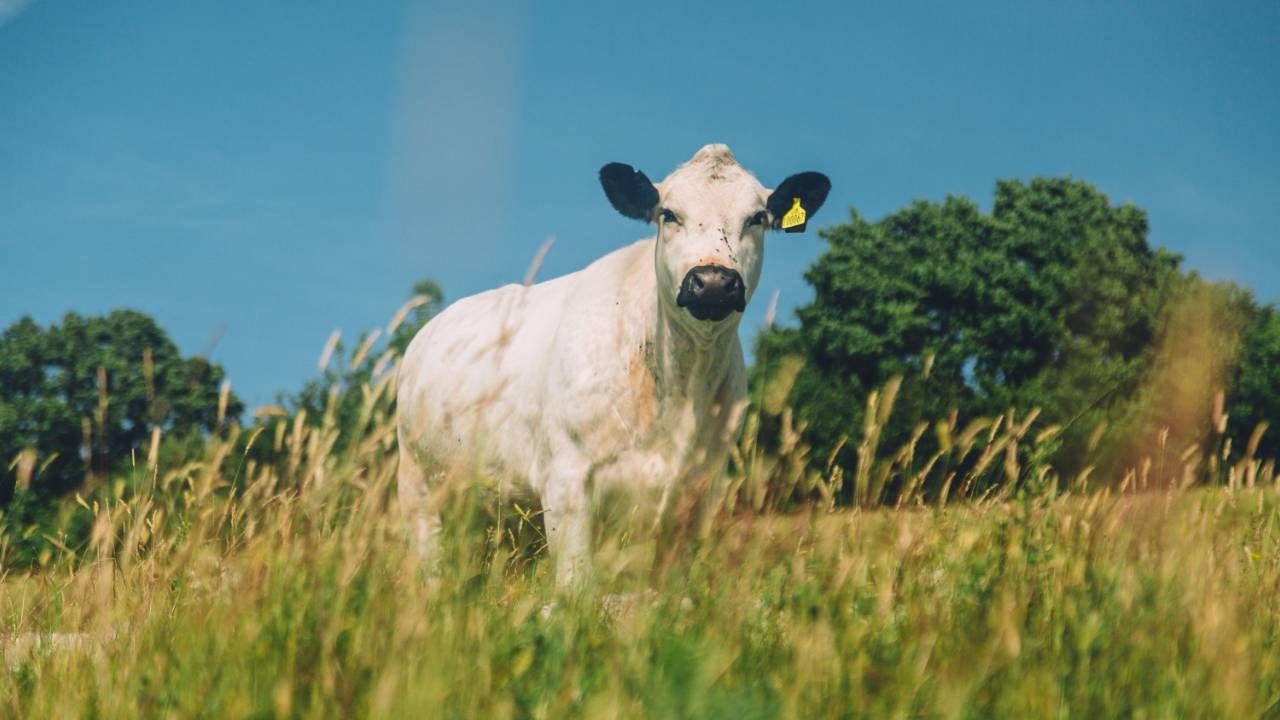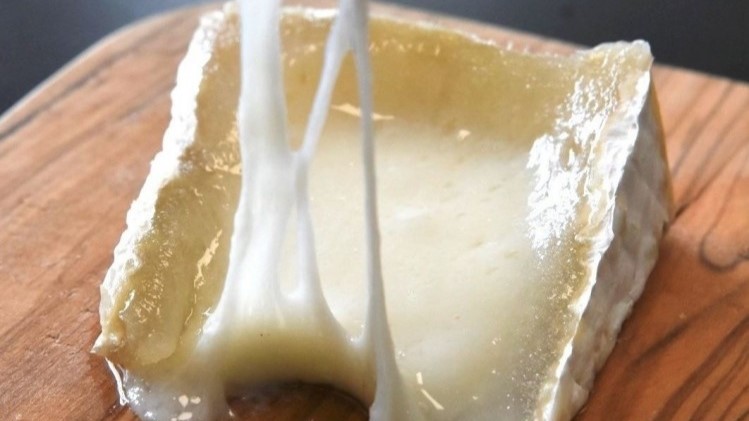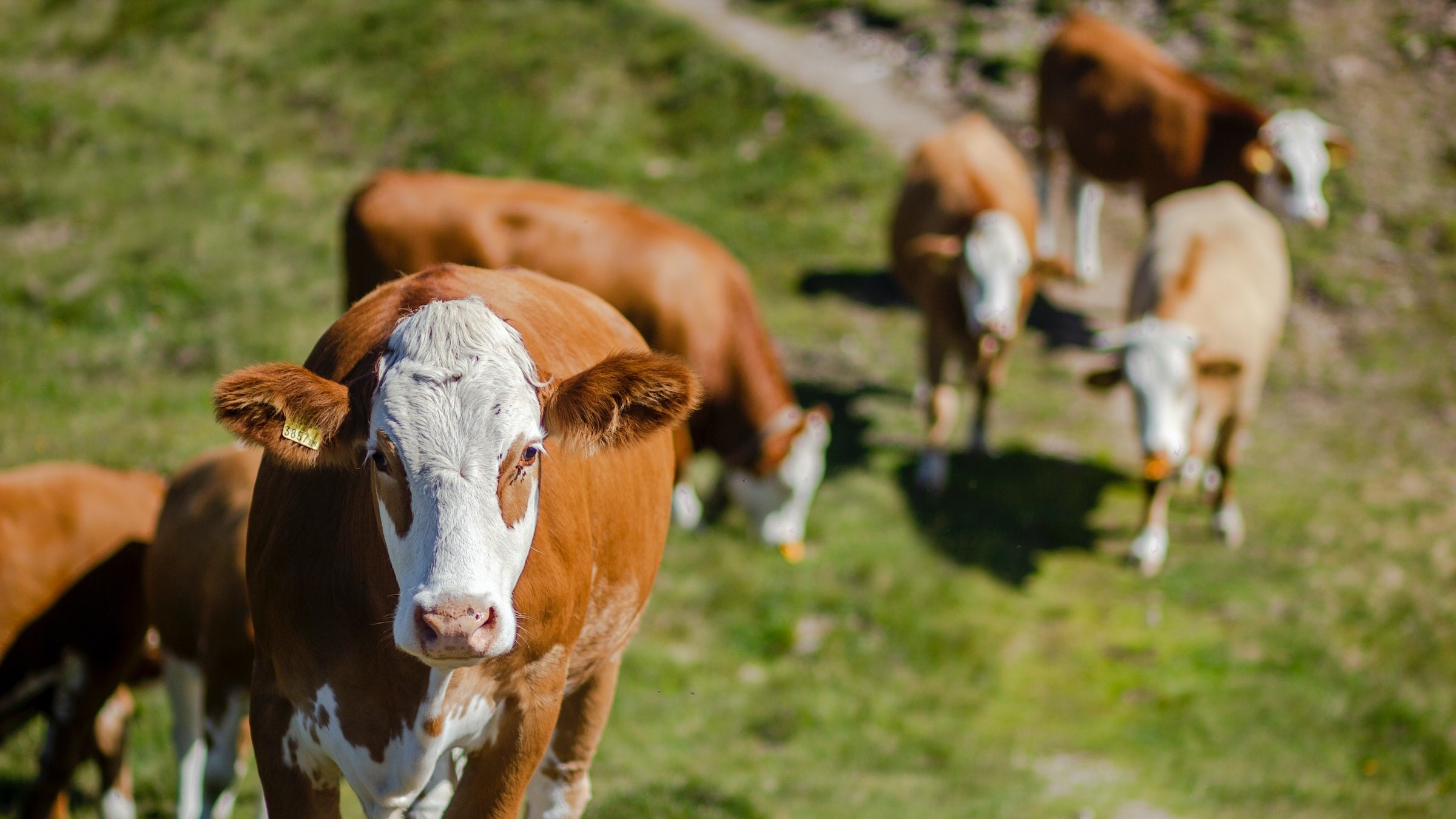September 2022: The Month in Review

After a slow third quarter for cellular agriculture investments, this September marked a busy end to the quarter for the field. From nine investment announcements as well as product showcases, this September also featured new partnerships to help scale the field. Including the first partnership between startups to scale the production of acellular foods via precision fermentation.
From startups and funding announcements to new government initiatives to support the field, we look at what happened this September 2022 in cellular agriculture.
Investments
Prolific Machines
In September, Prolific Machines came out of stealth mode and announced that the startup raised $42 million in funding to help scale the cell-based meat field.
Based in San Francisco, California, Prolific Machines is working to develop a technology to grow cells for cell-based meat without requiring expensive recombinant proteins in the cell culture media.
 The Prolific Machines team
The Prolific Machines team
The cell culture media is the nutrient formulation that provides all the nutrients and growth factors, including recombinant proteins, that cells may need to replicate or differentiate into another cell type.
An essential part of the cell-based meat supply chain, developing an inexpensive and animal-free cell culture media formulation has once been described as the Holy Grail for cellular agriculture companies.
Prolific Machines claims its technology platform help scale the cell-based meat field and reach price parity with conventional meats by removing the need for recombinant proteins.
The top funded startup with a focus on the cell-based meat supply chain, Prolific Machines’ seed funding round was led by venture capital firm Mayfield, and Breakthrough Energy Ventures led its Series A financing.
Prolific Machines also participated in the IndieBio life science accelerator program in 2020, an accelerator through which many cellular agriculture startups first began.
As the cellular agriculture field continues to grow, Prolific Machines joins a growing number of companies looking to develop a supply chain around scaling cell-based meat production.
Bond Pets
From foods to biomaterials, cellular agriculture can make a range of products, including pet foods.
Bond Pets announced that the company raised $17.5 million in Series A funding. Based in Boulder, Colorado, Bond Pets is a pet food startup that uses cellular agriculture to produce meat proteins via acellular agriculture (also known as precision fermentation).
 Bond Pets previously launched a yeast-derived dog treat bar
Bond Pets previously launched a yeast-derived dog treat bar
According to the announcement, Bond Pets’ funding round featured investments from various global food players and investment firms, including ADM Ventures, Cavallo Ventures, Genoa Ventures, and Lever VC.
The funding round brings Bond Pets total funding of $20 million. In December 2019, Bond Pets previously raised $1.2 million in seed funding and a bridge funding round in August 2020.
As part of the announcement, Bond Pets CEO Rich Kelleman shared that the company will shift its business to become a meat protein supplier to pet food manufacturers “due to the tremendous amount of inbound interest from pet food companies globally.”
Instead of producing its own dog treats and pet food products, Kelleman believes Bond Pets can have a more significant impact by focusing on making meat proteins for its strategic partners.
Bond Pets previously announced a partnership with Hill’s Pet Nutrition to develop an alternative to one of its popular meat pet foods for cats and dogs in November 2021.
Moving forward, Bond Pets plans to use the funding round to expand its team and its portfolio of meat proteins. The startup also plans to scale up its production capacity at a new 15,000 square ft. facility in central Boulder.
Standing Ovation
French startup Standing Ovation announced raising €12 million in Series A funding to develop cell-cultured dairy proteins using cellular agriculture. Founded in Paris in 2020, Standing Ovation uses acellular agriculture to produce dairy casein proteins to create dairy cheese.

Moving forward, Standing Ovation plans to focus on product development and research as well as explore regulatory processes for markets to launch. The startup expects to commercialize its products in 2024. Standing Ovation’s funding round was led by Astanor Ventures and featured investments from Big Idea Ventures, Peakbridge, and an undisclosed ‘leading player’ in the food industry.
BioBetter
At the start of September, Israeli startup Biobetter raised $10 million in Series A funding to develop growth factors in tobacco crops for cell-based meat production. By harnessing plants to produce growth factors, Biobetter claims its platform can reduce the cost of conventional growth medium proteins from $50,000 per gram to as low as $1 per gram.
Biobetter plans to use the funding round to expand to a larger pilot plant to increase its tobacco plant-processing capacity and broaden its product portfolio of growth factors. Biobetter aims to scale up production in 2023 and intends to commercialize its growth factors by 2024.
BioBetter’s funding round was led by Jerusalem Venture Partners with additional investments from Milk and Honey Ventures and the Israeli Innovation Authority.
Onego Bio
Onego Bio announced that the cell-cultured egg protein company raised an additional €4.5 million in grant funding from Business Finland.
A public organization under the Finnish Ministry of Employment and the Economy, Business Finland awarded Onego Bio a substantial grant as the startup’s solution addresses significant global challenges like climate change and food security.
Calling its protein production Bioalbumen, Onego Bio plans to use the grant funding to accelerate the research and development of its production platform. A spinoff from the VTT Technical Research Centre in Finland, Onego Bio raised €10 million in February 2022.
Profuse Technology
Profuse Technology announced raising $2.5 million in seed funding to enhance the production capacity of cell-based meat. Based in Israel, the startup claims that its cell culture media supplement can reduce the muscle creation and growth phase costs to make the production process more efficient.
The startup plans to use the funding round to collaborate with cell-based meat producers, obtain FDA regulatory approval in the US, and expand its team. Profuse aims to receive regulatory approval and sell its product as early as mid-2023 to cell-cultured meat players.
According to the announcement, the funding round brings its total funding to $3.75 million. The startup’s seed round was led by Green Circle and featured investments from existing investors OurCrowd, Tnuva, and Tempo. New investors in the funding round include Siddhi Capital and Kayma.
Nutropy
New startup Nutropy raised €2 million in pre-seed funding to use cellular agriculture to produce cell-cultured dairy cheese. Based in Paris, France, Nutropy aims to develop cell-cultured casein proteins and dairy fatty acids via acellular agriculture (also known as precision fermentation).

Co-founded by Maya Bendifallah and Nathalie Rolland, Nutropy aims to develop a B2B ‘cheeseable milk solution’ that can produce many types of cheese. The company plans to launch the first industrial production of its cell-cultured dairy within the next 24 months as a dairy ingredients player. Nutropy’s funding round was co-led by Beast Ventures, Big Idea Ventures, and Trellis Road.
TissenBioFarm
What role will 3D printing play in the future of cell-cultured meat? South Korean cell-based meat startup TissenBioFarm announced raising $1.6 million in pre-Series A funding to develop cell-cultured meat through its 3D-bioprinting platform.
A spinoff from Thyssen Biopharmaceuticals, TissenBioFarm claims its 3D-printing platform is highly scalable to mass produce whole-cult cultured meats using animal cells and its functional bio-ink. The startup has created three bio-inks that it claims can be mass-produced for $0.33 per 100 grams.
 TissenBioFarm's cell-cultured meat prototype
TissenBioFarm's cell-cultured meat prototype
The funding round was led by Envisioning Partners and featured investments from FuturePlay and Stonebridge Ventures. Mirae Holdings, an existing investor, also made a follow-up investment. TissenBioFarm previously raised $400,000 in funding in the spring of 2022.
De Novo Dairy
South African startup De Novo Dairy received an undisclosed investment from UM6P Ventures to use cellular agriculture to produce cell-cultured dairy products. The first startup to focus on producing dairy products via acellular agriculture (or precision fermentation) on the continent of Africa, De Novo Dairy shared that the investment will accelerate its research and scale-up efforts. In November 2021, De Novo Dairy announced raising its pre-seed funding round to develop cell-cultured dairy proteins.
BioTech Foods Receives Spanish Government Grant to Research Scaling
Spanish cell-based meat player BioTech Foods received a €753,000 grant from the Spanish Foreign Trade institute. Called the investMEAT project, BioTech Foods will use the grant to research cell lines, cell culture media, and biomaterials required to scale up the production of cell-based meat to industrial levels.
BioTech Foods shared that the results of the grant will contribute to the development of the first industrial plant in Spain. In November 2021, BioTech Foods was acquired by the Brazilian meat giant JBS as part of its $100 million plan to enter the cell-based meat field.
As part of the acquisition, JBS will invest $41 million towards constructing a new cell-based meat production plant in Spain for BioTech Foods to scale up the production of its cell-based meat. According to JBS, BioTech Foods already operates a pilot plant in San Sebastian and expects to reach commercial production by mid-2024.
BioTech Foods previously led a €5.2 million cultured meat project funded by the Spanish government and a €2.7 million research consortium project for cell-based meat research funded by the European Union through its Horizon 2020 Framework Programme for Research and Innovation.
Magic Valley Showcases Cell-Cultured Lamb Prototype
At the start of September, Australian cell-based meat startup Magic Valley showcased its cell-cultured lamb meat prototype. Showcasing cultured lamb burgers and tacos, Magic Valley shared that the prototypes were made without fetal bovine serum in its cell culture media formulation. According to the company, the prototypes were developed by taking skin cells from a living lamb and turning them into induced pluripotent stem cells.
 Magic Valley lamb prototype
Magic Valley lamb prototype
Moving forward, Magic Valley aims to raise its seed funding round of $5 million to scale up its production platform. The company aims to have regulatory approval in Australia by 2024.
Steakholder Foods Showcases Omakase Beef Morsels
Formerly known as MeaTech 3D, Steakholder Foods showcased its latest cell-based meat product: Omakase Beef Morsels, a marbled meat product using its 3D-printing platform. The company shared that the marbling standard of Wagyu beef inspired its cell-based Beef Morsels.
According to the company, the prototype consists of multi-layers of muscle and fat tissue, which have been differentiated from bovine stem cells. Using its 3D-printing platform, Steakholder Foods claims its Beef Morsels can be printed in various muscle-fat layer sequences with any desired marbling ratio, shape, or width.
 Steakholder Foods' Omakase Beef Morsels
Steakholder Foods' Omakase Beef Morsels
In addition, Steakholder Foods announced that the startup commenced the development of a bovine cell line in the US. In order to comply with regulatory guidelines issued by the USDA for tissue samples, the company isolated the cells sourced from live cattle that were raised on a farm approved by the USDA.
In August, the company announced plans to develop cell-cultured pork products using a new porcine cell line.
Onego Bio Partners with Perfect Day to Scale Production
Cellular agriculture companies Onego Bio and Perfect Day announced a partnership to scale the production of Onego Bio’s cell-cultured egg white proteins through nth Bio, Perfect Day’s newly branded enterprise biology business.
According to the announcement, Onego Bio will work with nth Bio and harness Perfect Day’s expertise in scaling up production, bioprocess development, and regulatory support in bringing cell-cultured animal proteins to market.
 Onego Bio partners with nth Bio by Perfect Day
Onego Bio partners with nth Bio by Perfect Day
Having first launched its enterprise biology business in September 2021, this is Perfect Day’s first publicly announced partnership through nth Bio.
Considering the versatility of egg white proteins, Onego Bio shared it is looking forward to working with Perfect Day to scale its production and explore coming to market. From receiving its GRAS notification in April 2020 to launching a range of food products through partnerships, Perfect Day has demonstrated a pathway to market for acellular agriculture players.
Interestingly, this is the first time two acellular agriculture (also known as precision fermentation) companies have announced a partnership to work together.
Moving forward, Onego Bio plans to launch its first cell-cultured egg white protein product, branded as Bioalbumin, in the US as an ingredient in the bakery and confectionary industry, as well as a protein supplement for fitness products.
While the companies did not share a timeline, Perfect Day shared nth Bio will operate out of its second facility in Salt Lake City, Utah, and will be operational by next August. Perfect Day previously announced its second Utah facility in April 2022.
Along with announcing the partnership, Perfect Day shared its own scaling milestone. According to the company, Perfect Day has already produced more cell-cultured whey protein in the first half of 2022 than in all of 2021.
Perfect Day also plans to produce thousands of metric tons of its whey protein next year through four commercial-scale facilities worldwide.
Orbillion Bio Parnters with Lutein Food
Cell-based meat startup Orbillion Bio announced a partnership with Dutch specialty meat distributor Lutein Food. According to the partnership, Lutein Food will distribute Orbillion Bio’s cell-cultured meat, pending regulatory approval, to its distribution channels across 35 European countries.
According to Orbillion, the partnership illustrates the startup’s intent to commercialize its products. Orbillion Bio shared that its first product will be a cell-based wagyu beef product. In May 2022, Orbillion Bio announced its plan to reach price parity with conventional meat in 2026 and commodity pricing for beef in 2030.
Nestle and Perfect Day Partner to Pilot Cell-Cultured Dairy
Food corporate Nestle announced a partnership with cellular agriculture company Perfect Day to create a milk beverage using Perfect Day’s cell-cultured dairy proteins. Nestle plans to pilot the milk beverage later this year at a handful of locations through its US R+D Accelerator to determine if acellular proteins are a good opportunity for the corporate.
Nestle shared that it is starting to explore cellular agriculture due to consumer interest in alternatives to conventional dairy products. At the same time, Nestle also reiterated its plan to continue to innovate in the plant-based sector.
White House Announces Executive Order to Support Biotechnology Ecosystem
The White House in the United States announced an executive order to support and foster the biotechnology ecosystem in the country, including a boost for the cellular agriculture food sector.
In a press briefing following the announcement, the White House shared that it is also looking to improve food security and drive agricultural innovation through the biotechnology initiative. Specifically, the briefing included exploring “foods made with cultured animal cells.”
As part of the executive order, the US Department of Agriculture (USDA) has to prepare a report to assess “how to use biotechnology and biomanufacturing for food and agricultural innovation…[including] cultivating alternative food sources.”
The report needs to identify high-priority research and development areas as well as public-private partnership opportunities.
With a focus on alternative food sources and a specific mention of cell-cultured animal products, the executive order signals that cellular agriculture is an area of key interest for the White House regarding biotechnology and food innovation.
The Cultivated B Launches to Scale Cellular Agriculture
New startup The Cultivated B (TCB) came out of stealth mode to help scale the cellular agriculture field. According to the announcement, TCB aims to enable the scalable production of sustainable proteins through its biotechnology platform. In addition to technology to optimize alternative protein production, TCB plans to produce and sell bioreactors, photobioreactors, and various services for both cell-cultured meat and precision fermentation production.
TCB is part of InFamily Foods, a parent company that includes The Family Butchers, Germany's second-largest sausage producer. While undisclosed, TCB shared that the startup raised its seed funding round.
Unilever aims to develop Future Food Hub in Switzerland
Unilever Switzerland and food tech venture studio Alphorn Venture Partners (AVP) announced a partnership to develop a future food hub in Thayngen, Switzerland, to support the scale-up of innovative foods. Unilever will contribute its expertise in nutrition and processing for the project, and AVP will provide access to its network of startups working in future food technologies, including both cell-cultured food players. The new hub could support startups scaling production without requiring many funding rounds by providing food tech players a facility to scale production.
In June 2022, Swiss companies Givaudan, Buhler, and Migros announced progress on their plan to develop a Cultured Food Innovation Hub in the country. They aim for the new facility to be operational in early 2023.
FAIRR Initiative and GFI Launch ESG Reporting Framework for Alternative Proteins
The investor network FAIRR Initiative and nonprofit Good Food Institute announced the launch of new reporting frameworks for alternative protein companies to demonstrate their environmental, social, and governance (ESG) factors. Before the framework, the organizations claim there were no comprehensive standards for companies manufacturing alternative proteins to assess and disclose their ESG data that investors, companies, and consumers need to make informed decisions.
Conclusion

After no new investment announcements in July, September marked a strong end to the third quarter for the cellular agriculture field with nine new investments. In addition, this month continued the trend of growing government support and funding opportunities to support the cellular agriculture field - this month from Spain and the US.
Specifically, it is encouraging to see the US White House signal its interest in the cellular agriculture field. Government regulation has been a major question moving forward for the field, particularly for cell-based meat companies. It is promising to see the White House include cellular agriculture as part of its biotechnology initiative.
As more cellular agriculture companies look to launch their food products in the US, the order may lead to further government support and accelerate initiatives to support the emerging field.
In October 2021, the USDA’s National Institute of Food previously announced $10 million in funding for the development of an Institute for Cellular Agriculture over a five-year period. As the first federally funded institute of its kind in the US, the Institute for Cellular Agriculture aims to address many of the field's critical questions and pain points.
Along with partnerships between corporates and startups, this September also saw the first partnership collaboration between two precision fermentation startups. While there have been several partnerships between cell-based meat startups, Onego Bio and Perfect Day’s partnership marks the first disclosed one between companies developing cell-cultured proteins.
In August 2022, dairy company Fonterra and Dutch multinational DSM became the first two major food and nutrition corporates to come together to launch a cellular agriculture startup focusing on dairy proteins.
Stay connected with CellAgri
Join our mailing list to receive the latest news and updates weekly from the cellular agriculture industry. Your information will not be shared.



